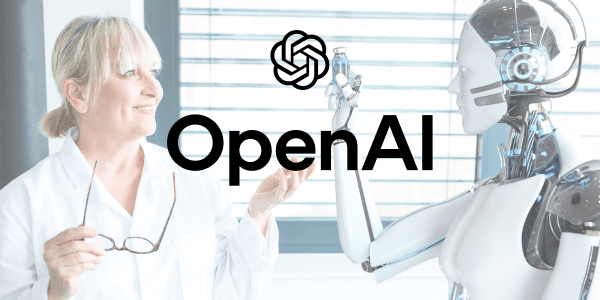Have you ever wondered how safe it is when an AI system provides medical advice? Or how well such a model truly performs outside of a theoretical test? OpenAI is now presenting a powerful answer in the form of HealthBench, a new open-source benchmark that evaluates AI models based on realistic medical scenarios.
AI as a medical sounding board
This tool goes beyond traditional multiple-choice tests. HealthBench simulates conversations between users or doctors and AI. These conversations are based on real healthcare practices, developed in collaboration with 262 doctors from 60 countries. The system evaluates AI responses for safety, accuracy, and appropriateness, using rubrics established by medical experts.
Impact on healthcare organizations and AI development
HealthBench provides developers and healthcare institutions with a benchmark to assess AI systems on realistic tasks. This is necessary. Many previous benchmarks have been limited to theoretical exams, such as MedQA or USMLE, on which current AI models are already achieving near-maximal scores. As a result, it has become difficult to make improvements or risks visible.
For organizations using AI for clinical decision-making or patient communication, this presents an opportunity to evaluate models in a reliable manner. This helps prevent flawed systems from being deployed in high-risk environments such as hospitals or medical practices.
Practical application and future-oriented testing
HealthBench contains 5,000 medical dialogues that encompass multiple rounds and languages. They address a range of themes such as emergencies, global health issues, and situations involving uncertainty. Each theme has its own assessment system. The evaluation is partly conducted with AI, but always according to human medical standards.
The benchmark is intended for two target groups. On one hand, it is for researchers, who are encouraged to build models that truly serve humanity. On the other hand, it is for healthcare institutions, which gain an objective tool to assess AI within their own workflows and priorities.
This development coincides with broader collaborations by OpenAI in healthcare. From personalized AI tools for cancer care (Color Health) to the application of GPT-4 in administrative healthcare processes (Iodine Software) and the acceleration of clinical research (Sanofi and Formation Bio).
Conclusion
With HealthBench, OpenAI takes a step towards transparent and realistic evaluation of medical AI. The benchmark raises the bar by focusing on real situations. This creates room for improvement, safety, and substantiated trust in AI within healthcare.

